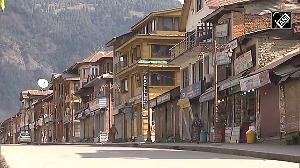Since the SEZ Act was notified in February 2006, 22 SEZs have been up and running. In the last financial year (2006-07), these SEZs collectively exported goods worth Rs 33,000 crore (Rs 330 billion) , roughly 6 per cent of India's total exports of Rs 5,71,641 crore (Rs 5716.41 billion).
This year, according to commerce ministry projections, SEZ exports will more than double to be Rs 67,088 crore (Rs 670.88 billion). "Next year, exports from SEZs will easily cross Rs 1,00,000 crore (Rs 1000 billion)," the official predicted.
Officials also pointed out that 52,000 people have found employment in the new SEZs set up after 2005.
"In most of these zones, employees are from the nearby villages and towns," an official said. Employment is projected to rise to 2.1 million by December 2009.
In fact, a growing number of companies have been making a beeline to set up units inside SEZs. This is in contrast to the export processing zone (EPZ) scheme, which lasted from the mid-1960s to 1999, and is widely acknowledged to have been a non-starter despite tax breaks and other incentives.
Signs of growing activity are already evident in the fact that the eight government-owned EPZs that were converted into SEZs are strapped for space.
"Two years ago, when the SEZ Act had not come into force, there was lot of space in these zones. Today, most are full," said a government official.
Out of the eight, seven - Kandla, Vishakapatnam, Kochi, Noida, Mumbai, Chennai and Falta - were initially set up by the central government as EPZs.
The eighth - Surat - is the country's first operating zone in the private sector, developed by Diamond and Gem Development Corporation Ltd (DGDC).
Limited space was available at Noida and the Surat SEZ is planning to expand to accommodate more units, the official added.
Commerce ministry data show that till the end of August, 366 SEZs, which have land in their possession, were formally approved. Of these, 42 have been notified and can start construction.
Another 176 SEZs have been given in-principle approval, which means they are yet to acquire land.







 © 2025
© 2025